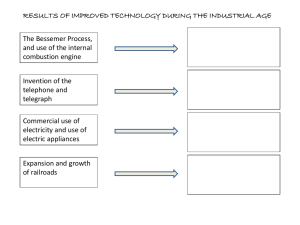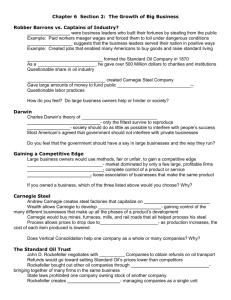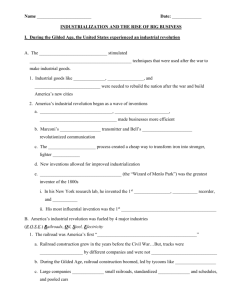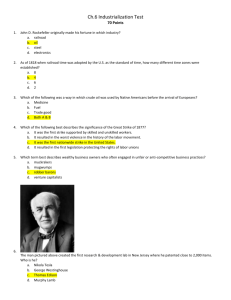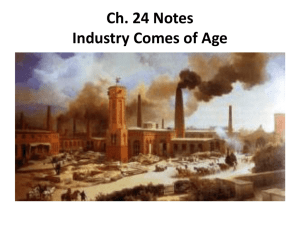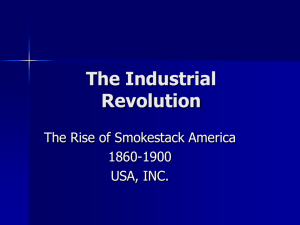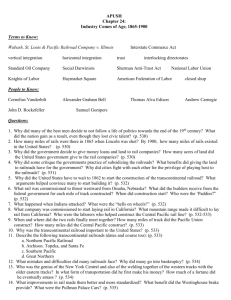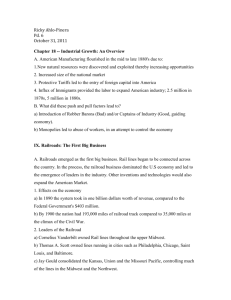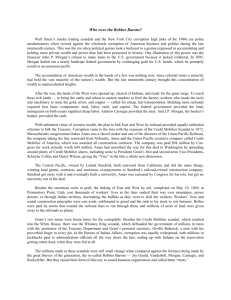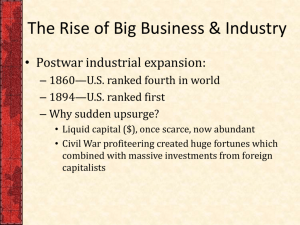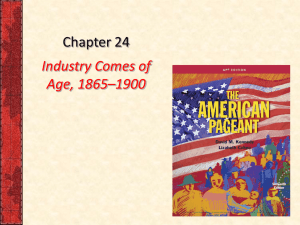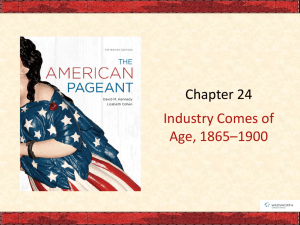The American Promise: A Compact History, Third Edition 1
advertisement
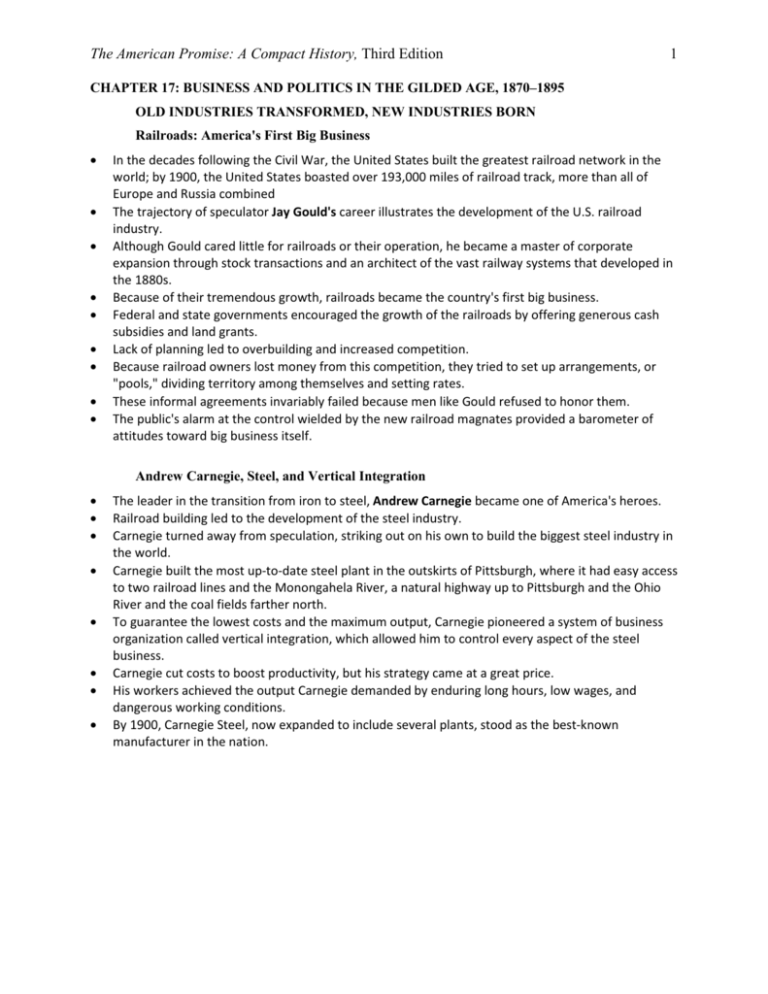
The American Promise: A Compact History, Third Edition 1 CHAPTER 17: BUSINESS AND POLITICS IN THE GILDED AGE, 1870–1895 OLD INDUSTRIES TRANSFORMED, NEW INDUSTRIES BORN Railroads: America's First Big Business • • • • • • • • • In the decades following the Civil War, the United States built the greatest railroad network in the world; by 1900, the United States boasted over 193,000 miles of railroad track, more than all of Europe and Russia combined The trajectory of speculator Jay Gould's career illustrates the development of the U.S. railroad industry. Although Gould cared little for railroads or their operation, he became a master of corporate expansion through stock transactions and an architect of the vast railway systems that developed in the 1880s. Because of their tremendous growth, railroads became the country's first big business. Federal and state governments encouraged the growth of the railroads by offering generous cash subsidies and land grants. Lack of planning led to overbuilding and increased competition. Because railroad owners lost money from this competition, they tried to set up arrangements, or "pools," dividing territory among themselves and setting rates. These informal agreements invariably failed because men like Gould refused to honor them. The public's alarm at the control wielded by the new railroad magnates provided a barometer of attitudes toward big business itself. Andrew Carnegie, Steel, and Vertical Integration • • • • • • • • The leader in the transition from iron to steel, Andrew Carnegie became one of America's heroes. Railroad building led to the development of the steel industry. Carnegie turned away from speculation, striking out on his own to build the biggest steel industry in the world. Carnegie built the most up-to-date steel plant in the outskirts of Pittsburgh, where it had easy access to two railroad lines and the Monongahela River, a natural highway up to Pittsburgh and the Ohio River and the coal fields farther north. To guarantee the lowest costs and the maximum output, Carnegie pioneered a system of business organization called vertical integration, which allowed him to control every aspect of the steel business. Carnegie cut costs to boost productivity, but his strategy came at a great price. His workers achieved the output Carnegie demanded by enduring long hours, low wages, and dangerous working conditions. By 1900, Carnegie Steel, now expanded to include several plants, stood as the best-known manufacturer in the nation. The American Promise: A Compact History, Third Edition John D. Rockefeller, Standard Oil, and the Trust • • • • • • • The amount of capital needed to buy or build an oil refinery in the 1860s and 1870s remained relatively low, prompting rigorous competition among many small refineries. John D. Rockefeller, who came to control nine-tenths of the oil-refining business, incorporated his oil business, founding the Standard Oil Company in 1870. Rockefeller demanded secret rebates from the railroads in exchange for his steady business, enabling Rockefeller to undercut his competitors. In 1882, Rockefeller pioneered a new form of corporate structure--the trust-- which allowed Standard Oil trustees to hold stock in various refinery companies "in trust" and to coordinate policy between the refineries, giving Rockefeller a monopoly of the oil-refining business. When the government threatened to outlaw the trust as a violation of free trade, Standard Oil changed its tactics and reorganized as a holding company, which combined competing companies under one central administration. By 1890, Standard Oil ruled more than 90 percent of the oil business. Journalist Ida B. Tarbell exposed Rockefeller's unsavory business practices in a series of articles that appeared in McClure's Magazine from 1902 to 1905, contributing to the American people's unfavorable opinion of Rockefeller. New Inventions: The Telephone and Electricity • • • • The second half of the nineteenth century was an age of invention Alexander Graham Bell developed the telephone, and soon Americans were communicating locally and across the country with long-distance telephone service. 3. Even more than Alexander Graham Bell, inventor Thomas Alva Edison embodied the old-fashioned virtues of Yankee ingenuity and rugged individualism that Americans most admired. Edison pioneered the use of electricity as an energy source. While Americans thrilled to the new changes wrought by inventors, the day of the inventor quietly yielded to the heyday of the corporation. 2

